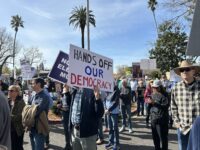Profiling has been a hot topic lately, and the arrest of Harvard Professor Gates certainly stimulated a fresh round of examination of the topic. The issue is not whether or not people quickly form opinions of others; it is abundantly clear that “sizing up” others is something people do quite instinctively. That such evaluation is colored by social and cultural tendencies, stereotyping, bigotry, prejudice, favoritism, sexual attraction or repulsion, paranoia, anxiety, media-fed scare tactics, political or sexual orientation, fetishes, or any other of the myriad ways in which human beings relate to each other is not the issue either. The issue is profiling by law enforcement.
Equality under the law is one of the basic tenets of American justice. Matters of race, creed, color or national origin are supposed to be irrelevant. Accordingly, matters of clothing type, hair style, body odor, eye color, body size, vocal accent, use of grammar, penmanship and essentially all other law-abiding ways of being, from the standpoint of law enforcement, should also be irrelevant. In other words, the very aspects by which we identify ourselves by certain characteristics, styles or manners, and the ways in which we identify other by the same means have no role in law enforcement, in theory.
However, law enforcement is largely a matter of people to people interaction. This is changing as technology continues its relentless expansion; iris scanning, full body x-rays, metal detectors, video camera street monitoring, high resolution spy satellites, and camera-equipped missile-carrying drones notable examples of change. But technology not-withstanding, police officers are people – not machines – and therefore they make quick judgments about others. Given their frequent contact with criminals, it is also not surprising that officers may develop an unfortunate predisposition to view others as suspicious or possibly criminal.
Forty years ago at the age of 22, I had adopted the style and dress of many other young denizens of San Francisco. My hair was long, I wore beads, my wardrobe included bell-bottomed pants, and I tooled-round in a hand-painted VW Bus. In short, I looked like a hippie. However, my daughter had just been born, I had just opened a graphic design business in a building at Second and Market and so I identified myself first as a husband, father and businessman.
I was driving along Church Street one Tuesday morning when I was pulled over for no obvious reason by two of San Francisco’s finest. I had a license and a valid registration, insurance and no outstanding tickets. The VW bus was funky (I’d bought it for $600 from a fellow who’d driven it cross-country from Philadelphia; if you lifted the floor mat you could see the road!) but it ran well. In any event, one officer walked up to my window, and giving me a dirty look, asked for my license and registration.
“Where you going, Hippie?” he asked in a none-to-pleasant manner. “I’m just headed,” I replied cheerily, “to my office.” He blinked repeatedly, said nothing and then sneered. “Your office. What do you mean your office?” he demanded sarcastically. He could not, it seemed, imagine that someone fitting my particular description could work in an office. I did my best to explain; looking disgusted, he brusquely tossed back my papers and walked away shaking his head, muttering.
I’d been profiled.




